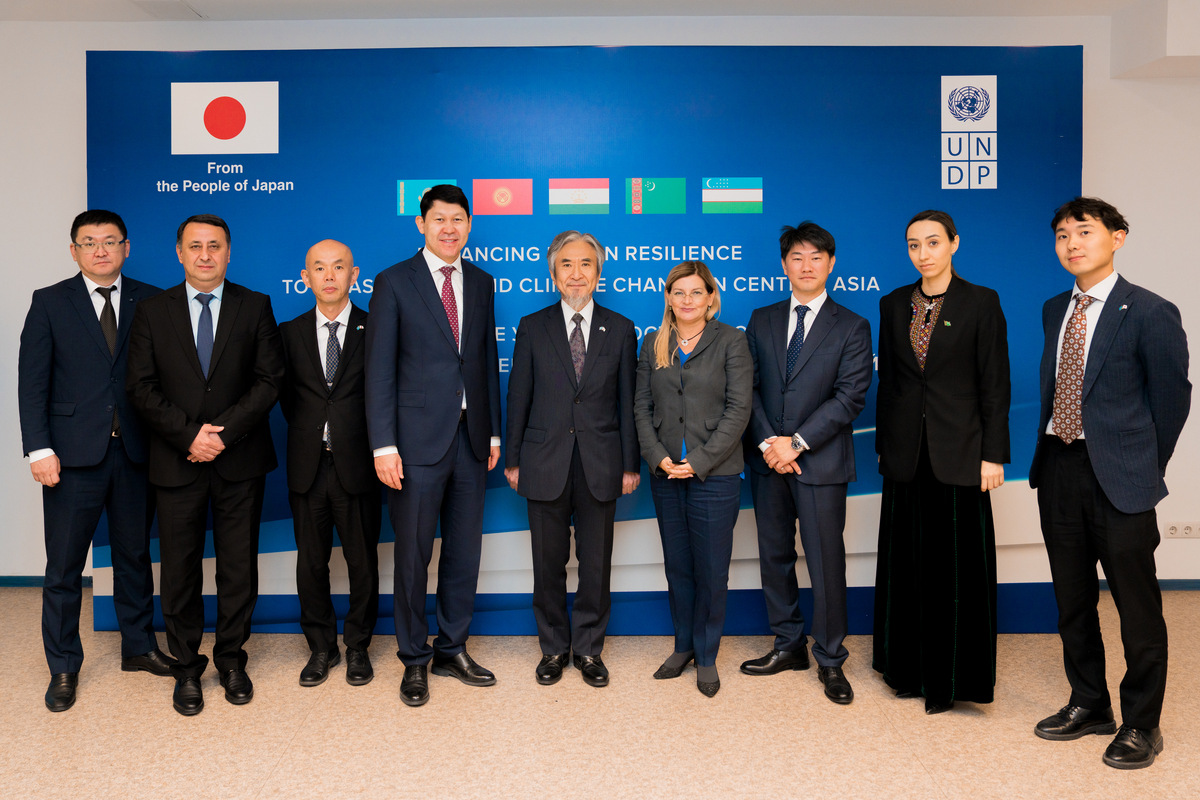ASTANA – The UN Development Program (UNDP) and the Japanese government signed a $4.9 million project to strengthen urban resilience against climate-driven risks in Central Asia on Sept. 11 in Astana, reported the UNDP’s press service.

Photo credit: UNDP
The project will be implemented as a part of the regional cooperation under the Central Asia plus Japan Dialogue.
As one of the most climate-vulnerable regions, Central Asia faces frequent natural hazards that often escalate into disasters, high environmental degradation, and pollution. Rapid urbanization further intensifies these challenges. With regional temperatures projected to rise by 2.0 to 5.7 degrees Celsius by 2085, the threat of extreme weather events, heat waves, and droughts becomes more serious.
UNDP Resident Representative in Kazakhstan Katarzyna Wawiernia stressed that Central Asia’s vulnerability to climate change requires immediate action.
“This initiative will utilize collaborative mechanisms and transformational strategies to tackle escalating natural hazards and strengthen urban resilience throughout the region,” she said.
The project will enhance regional cooperation while introducing innovative urban planning strategies. By integrating new methods for climate and disaster risk assessment, it aims to reshape urban planning to effectively address future climate challenges.
Director of UNDP Istanbul Regional Hub Steliana Nedera highlighted the project’s goal of integrating climate and disaster risk reduction into urban planning, ensuring that cities in Central Asia are better prepared for future climate risks.
